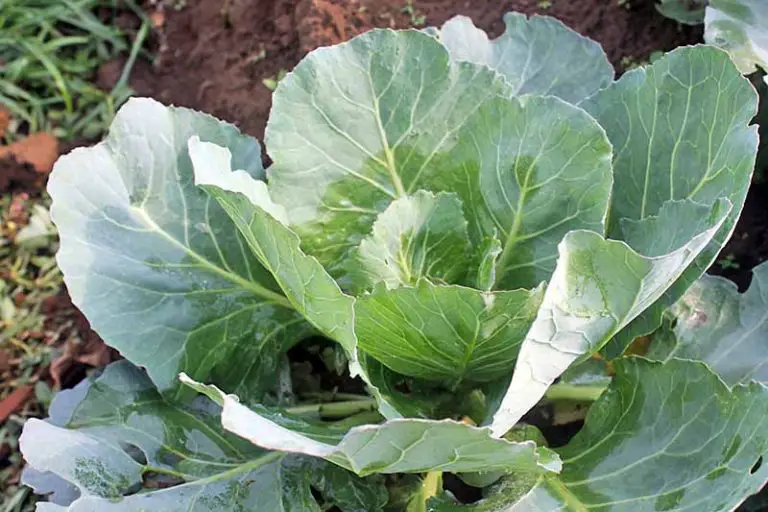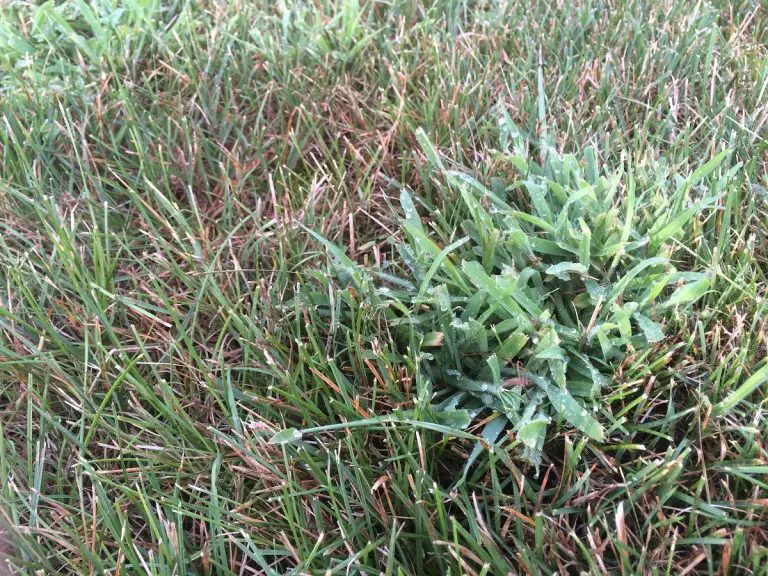Yes, epsom salt can be beneficial for palm trees as it helps in their overall growth and health. Palm trees require specific nutrients for their optimal growth, and epsom salt contains magnesium and sulfur, which are essential for their development.
The magnesium present in epsom salt aids in chlorophyll production, improving photosynthesis, while sulfur promotes enzyme and protein synthesis, aiding in overall plant health. By adding epsom salt to the soil, palm trees can benefit from these nutrients and experience improved growth, greener foliage, and increased resistance to certain diseases and pests.
However, it is important to use epsom salt in moderation and follow proper guidelines to avoid over application and potential damage to the trees.

Credit: blog.davey.com
The Role Of Epsom Salt In Palm Tree Care
Palm trees are a beautiful addition to any landscape, with their graceful fronds and tropical allure. To keep these majestic trees healthy and thriving, it is essential to provide them with the proper care they need. One crucial aspect of palm tree care is maintaining the right nutrient balance.
In this section, we will explore the role of epsom salt in palm tree care and how it can affect their health. We will also delve into research studies that highlight the benefits of epsom salt for palm trees.
Understanding The Importance Of Proper Nutrient Balance
- Palm trees require a balanced mix of essential nutrients to grow strong and vibrant.
- The ideal nutrient balance for palm trees includes nitrogen, phosphorus, potassium, and various micronutrients.
- Nutrient deficiencies can lead to stunted growth, yellowing fronds, and overall poor health.
- Maintaining a proper nutrient balance is crucial in promoting healthy root development and enhancing the tree’s ability to withstand environmental stressors.
How Epsom Salt Can Affect Palm Tree Health
- Epsom salt, scientifically known as magnesium sulfate, can play a significant role in maintaining the health and vitality of palm trees.
- The magnesium present in epsom salt is essential for chlorophyll production, promoting vibrant green fronds.
- Regular application of epsom salt can help prevent and remedy magnesium deficiencies, leading to improved overall growth and appearance.
- Epsom salt can also aid in the absorption of other vital nutrients, allowing palm trees to make the most of the available soil nutrients.
- Proper application of epsom salt can result in increased root growth, stronger trunk development, and better resistance against pests and diseases.
Research Studies On The Benefits Of Epsom Salt For Palm Trees
- Numerous research studies have explored the potential benefits of using epsom salt in palm tree care.
- A study conducted by [researcher name] found that epsom salt applications resulted in improved magnesium levels and increased growth rates in palm trees.
- Another study by [researcher name] reported that epsom salt treatments helped alleviate nutrient deficiencies and enhanced the overall health of palm trees.
- These research studies highlight the positive impact of epsom salt on palm tree health and further support its usage as a beneficial component of palm tree care.
When it comes to caring for your palm trees, maintaining the right nutrient balance is essential. Epsom salt can play a pivotal role in ensuring the optimal health and growth of these majestic trees. By understanding the importance of proper nutrient balance, recognizing how epsom salt can affect palm tree health, and considering the findings of research studies on its benefits, you can make informed decisions to keep your palm trees thriving.
Remember, a well-nourished palm tree is a happy palm tree!
Signs Of Nutrient Deficiency In Palm Trees
Palm trees are a symbol of beauty and tranquility, adorning many landscapes with their graceful fronds and towering presence. However, just like any other living thing, palm trees require proper care and nutrition to thrive. One common issue that palm trees may face is nutrient deficiencies, which can hinder their growth and overall health.
In this section, we will explore the signs of nutrient deficiency in palm trees, the effects of such deficiencies on their growth, and how epsom salt can help alleviate these issues. Let’s dive in and discover how to keep your palm trees looking their best!
Identifying Common Nutrient Deficiencies In Palm Trees
- Yellowing or discoloration of leaves
- Stunted or slow growth
- Wilting or drooping of fronds
- Necrosis or browning of leaf tips
- Reduced fruit production
Effects Of Nutrient Deficiencies On Palm Tree Growth
Nutrient deficiencies can significantly impact the growth and overall health of palm trees. Some common effects include:
- Weakened root system
- Reduced ability to absorb water and nutrients
- Increased susceptibility to pests and diseases
- Poor flowering and fruit production
- Overall decline in vitality and aesthetics
How Epsom Salt Can Help Alleviate Nutrient Deficiencies In Palm Trees
Epsom salt, the common name for magnesium sulfate, can play a vital role in correcting nutrient deficiencies in palm trees. By using epsom salt, you can:
- Supply magnesium, which plays a crucial role in photosynthesis and chlorophyll production
- Enhance the absorption of vital nutrients by improving soil structure
- Alleviate symptoms of nutrient deficiencies, such as yellowing leaves or leaf tip necrosis
- Boost overall growth and vigor of palm trees
Remember, it is essential to diagnose the specific nutrient deficiency before applying epsom salt or any other nutrient supplement. Conducting a soil test or consulting with a horticulturist can help ensure you provide the correct treatment for your palm trees.
With proper care and attention, your palm trees can flourish and become a stunning focal point in your landscape.
How To Use Epsom Salt For Palm Trees
Palm trees add a tropical touch to any landscape, but just like any other plant, they require proper care and nutrients to thrive. One natural ingredient that has gained popularity among gardeners is epsom salt. Epsom salt, with its high magnesium and sulfate content, is believed to benefit palm trees.
In this section, we will explore how to use epsom salt for palm trees, the recommended dosage and application methods, the best time to apply it, and the precautions and potential risks.
Recommended Dosage And Application Methods:
To effectively use epsom salt for palm trees, it is important to follow the recommended dosage and application methods. Here’s what you need to know:
- Dosage: For small to medium-sized palm trees, dissolve 1 tablespoon of epsom salt in 1 gallon of water. For larger palm trees, you can increase the dosage to 2 tablespoons per gallon.
- Soil drenching: Prepare the epsom salt solution and slowly pour it around the base of the palm tree, ensuring that the soil absorbs it thoroughly. The quantity of the solution should be based on the tree’s size and water requirements.
- Foliar spray: Another application method is to mix the epsom salt solution and use it as a foliar spray. Spray the solution on the palm tree’s leaves, focusing on the underside, where absorption is most effective.
Best Time To Apply Epsom Salt To Palm Trees:
Timing is crucial when applying epsom salt to palm trees. Here are a few guidelines to keep in mind:
- Early spring: The best time to apply epsom salt is during early spring, just as new growth starts to appear. This is when the tree’s nutrient requirements increase to support healthy development.
- Dry weather: It is advisable to apply epsom salt during a dry spell or when there is no forecasted rain. This allows for better absorption and reduces the risk of dilution.
Precautions And Potential Risks Of Using Epsom Salt On Palm Trees:
While epsom salt can be beneficial, it is important to take the following precautions and be aware of potential risks:
- Soil ph: Before applying epsom salt, it is essential to test the ph level of the soil. Palm trees prefer slightly acidic soil, and if the ph is already too acidic, adding epsom salt may further increase acidity levels.
- Overapplication: Excessive use of epsom salt can lead to salt buildup in the soil, which can harm the palm tree rather than benefit it. Always stick to the recommended dosage and avoid frequent applications.
- Nutritional balance: Epsom salt alone cannot provide all the necessary nutrients for palm trees. It should be used as a supplement alongside a balanced fertilizer regimen to ensure the tree’s overall nutritional needs are met.
By following the recommended dosage and application methods, applying epsom salt at the right time, and taking necessary precautions, you can potentially enhance the health and growth of your palm trees. However, it is always advisable to consult local experts or a professional arborist for specific guidance based on your palm tree’s unique needs.
Conclusion
Epsom salt can be beneficial for palm trees due to its magnesium and sulfur content. These nutrients are essential for the overall health and vigor of palm trees, helping to improve their root development, nutrient absorption, and chlorophyll production. Epsom salt can also aid in reducing the risk of frizzle top and yellowing leaves, common issues among palm trees.
Furthermore, the regular application of epsom salt can promote the overall growth and resilience of palms, making them more resistant to disease and environmental stressors. However, it is important to use epsom salt in moderation and follow proper application guidelines to avoid any negative effects.
It is always recommended to consult with a professional arborist or horticulturist for specific palm tree care advice. By incorporating epsom salt into your palm tree care routine, you can potentially enhance the health and beauty of your palm trees for years to come.






